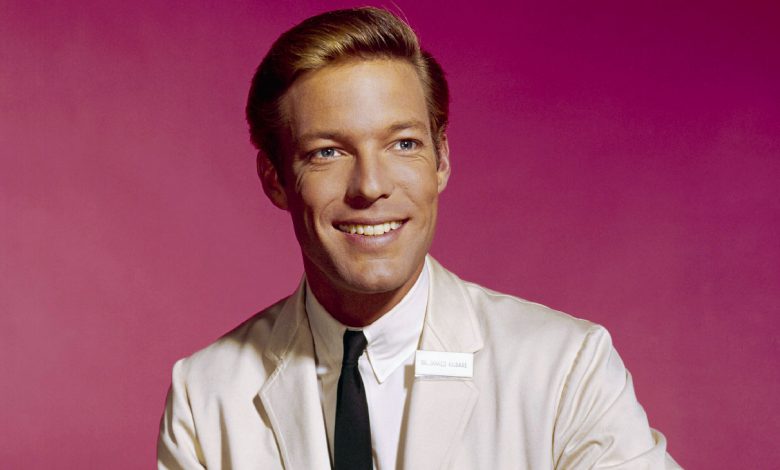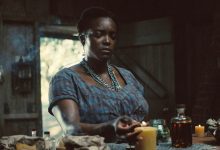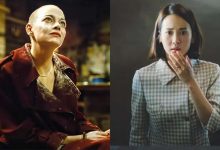Richard Chamberlain, Star of ‘Dr. Kildare’ and King of the Melodramatic Miniseries, Dies at 90

Richard Chamberlain, the handsome leading man who thrilled women as the young star of Dr. Kildare and then centered the epic, melodramatic miniseries Shogun and The Thorn Birds, has died. He was 90.
Chamberlain died on Saturday night in Waimanalo, Hawai’i of complications following a stroke, his publicist Harlan Boll told The Hollywood Reporter. He was one day shy of his 91st birthday.
“Our beloved Richard is with the angels now,” Chamberlain’s former longtime partner Martin Rabbett said in a statement. “He is free and soaring to those loved ones before us. How blessed were we to have known such an amazing and loving soul. Love never dies. And our love is under his wings lifting him to his next great adventure.”
On the big screen, Chamberlain played Julie Christie’s brutal husband in Richard Lester’s Petulia (1968), the woman-loving Aramis in a trio of Three Musketeers films and the fortune hunter Allan Quatermain opposite Sharon Stone in King Solomon’s Mines (1985) and Allan Quatermain and the Lost City of Gold (1986).
Chamberlain started off his miniseries career by starring as trapper Alexander McKeag in James Michener’s 16 1/2 hour, 12-episode saga Centennial, which aired on NBC in 1978-79, and he was the first actor to portray Jason Bourne on the screen when he starred as the Robert Ludlum character in an ABC miniseries in 1988.
In his liberating 2003 autobiography Shattered Love, Chamberlain, then 69, came out as gay.
“When you grow up in the ’30s, ’40s and ’50s being gay, it not only ain’t easy, it’s just impossible,” he told The New York Times in 2014.
Chamberlain learned while growing up “that being gay was the worst thing you can possibly be. I assumed there was something terribly wrong with me. And even becoming famous and all that, it was still there.”
Raised in Beverly Hills, Chamberlain was a rather inexperienced actor when he was hired to play James Kildare, an earnest intern with terrific bedside manner — and the mentee of Dr. Leonard Gillespie (Raymond Massey) — on Dr. Kildare.
The NBC drama was based on popular MGM radio and film serials (Lew Ayres portrayed the character on the big screen). Female viewers quickly fell for Chamberlain, and he received upward of 12,000 fan letters a week, more than anyone had ever received at MGM, even Clark Gable.
“My self-esteem deep down was very low, low, low for various reasons, so having that kind of public adulation was just wonderful. It was like a wonderful medicine,” Chamberlain said in a 2010 chat for the website The Interviews: An Oral History of Television. “Being thought to be very attractive, I thought that was just great!”
The show aired for five seasons, from September 1961 until August 1966. “I went through life pretending to be perfect, and that helped me play Dr. Kildaire, because he was close to perfect,” he said.
On the Australian-set The Thorn Birds, which aired on ABC over four nights in March 1983, Chamberlain portrayed Father Ralph, a Catholic priest who is involved in a tortured romance with the ravishing young Meggie (Rachel Ward), who seeks solace from a ranch hand (Bryan Brown, her future real-life husband).
“It was one of the great love affairs in the history of the world, except God was in there between them,” Chamberlain said.
The Thorn Birds, based on Colleen McCullough’s novel, was then the second highest-rated miniseries of all time, trailing only 1977’s Roots (both were produced by David L. Wolper). Chamberlain found its success a bit surprising given that “it was one tragedy after another after another after another. Nobody came out on top.”
James Clavell’s Shogun was originally envisioned as a feature starring Robert Redford. NBC got the rights after those plans fell through and wanted Sean Connery to star as the tempestuous Englishman John Blackthorne. When he could do it, the network cast Chamberlain, who had read the book and pushed for the part. He spent six months shooting the miniseries in Japan, and it aired for 12 hours over five nights in 1980.
Shogun earned Chamberlain a best actor Golden Globe and Emmy nomination, and for The Thorn Birds, he took home another Globe for best actor in a miniseries or motion picture for TV.
George Richard Chamberlain was born in Los Angeles on March 31, 1934, the youngest of two sons. His father, Charles, was a salesman for a company that sold fixtures to supermarkets, and his mother, Elsa, was a housewife who played the piano.
He was raised in Beverly Hills, but on the “wrong side of Wilshire Boulevard, the wrong side of Beverly Drive, in an extremely normal neighborhood,” he noted. He attended Beverly Hills High School, where he appeared in such plays as I Remember Mama.
“I wasn’t that attracted to real life, I liked fantasy life,” he said in his Oral History of Television interview. “I liked role-playing and all that stuff. I was really set up to be an actor, because that was when I was happiest, essentially being someone else.”
Chamberlain attended Pomona College as an art major and didn’t decide to fully pursue acting until he was a senior and received applause for his performance as Bluntschli in George Bernard Shaw’s Arms & the Man.
Reps from Paramount came calling, and while he was talking to them about a contract, he was drafted into the U.S. Army. He spent 16 months in Korea, attaining the rank of sergeant.
Back home, he studied with blacklisted actor turned teacher Jeff Corey and signed with influential MCA agent Monique James, and one of his first paying jobs came on a 1959 episode of Alfred Hitchcock Presents as a son of Massey. That was extraordinarily fortunate, because the veteran actor was going to have to sign off on him to play James Kildaire.
MGM had thought of Chamberlain for the role after he had starred in a failed pilot for a Western, Paradise Kid, and after Massey approved, he was signed him to a seven-year contract, one of the last in the studio era. (William Shatner wrote in his autobiography that he turned down the role.)
Even as Dr. Kildaire was a hit, Chamberlain said he was not comfortable. “There was a terrible danger of being outed,” he said. “I was a romantic lead, for God’s sake; that was my whole career, practically.”
It was a halcyon time for TV doctors — ABC’s Ben Casey also was on the air from 1961-66.
After Dr. Kildaire was done, Chamberlain starred with Mary Tyler Moore in a 1966 stage adaptation of Breakfast at Tiffany’s, but that lasted just four previews and never opened on Broadway — despite direction by Abe Burroughs and a rewrite by Edward Albee.
“Turned out to be the biggest flop that ever hit Broadway,” he said.
Chamberlain worked on Petulia, then ventured to England in 1968 to learn how to become “a serious actor.” He won acclaim as Ralph Touchett in a BBC adaptation of Henry James’ The Portrait of a Lady and played Hamlet at the Birmingham Repertory Theatre — the first American to do so since John Barrymore in the late 1920s.
“That was what blasted me out of the extreme gravity of Dr. Kildaire,” he said. “People back in the States were saying, ‘He played Hamlet? What?’ It changed the way people thought about me.”
Chamberlain then landed high-profile telefilm work in the U.S., portraying Scott Fitzgerald in ABC’s F. Scott Fitzgerald and ‘The Last of the Belles’ in 1974; the vengeful Edmond Dantes in NBC’s The Count of Monte Cristo in 1975; and Phillipe/Louis in NBC’s The Man in the Iron Maskin 1977.
His film résumé also included Twilight of Honor (1963), Joy in the Morning (1965), The Madwoman of Chaillot (1969), Julius Caesar (1970), The Music Lovers (1971), The Towering Inferno (1974), The Slipper and the Rose: The Story of Cinderella (1976), Peter Weir’s The Last Wave (1977) and The Swarm (1978).
More recently, Chamberlain guest-starred on Nip/Tuck, playing a gay millionaire who forces his younger lover to have plastic surgery so as to resemble himself; recurred on Brothers & Sisters as a former love interest of Ron Rifkin’s character; hilariously portrayed Craig Ferguson’s mom, Maggie Wick, on The Drew Carey Show; and appeared on the Twin Peaks reboot.
He was the first person ever interviewed on Entertainment Tonight.
Chamberlain also was a singer, and his “These Stars Will Shine Tonight” — the theme from Dr. Kildaire — reached No. 10 on the Billboard Hot 100 chart in 1962.
In his Oral History of Television interview, Chamberlain said he found great relief after he came out with the publication of his book.
“Suddenly, all that fear, all that self-dislike … it was like an angel had put her hand on my head and said, ‘It’s over, all that negative stuff is over,’ ” he said. “Being gay is one of the least interesting facts you can know about a person.”
Source: Hollywoodreporter





